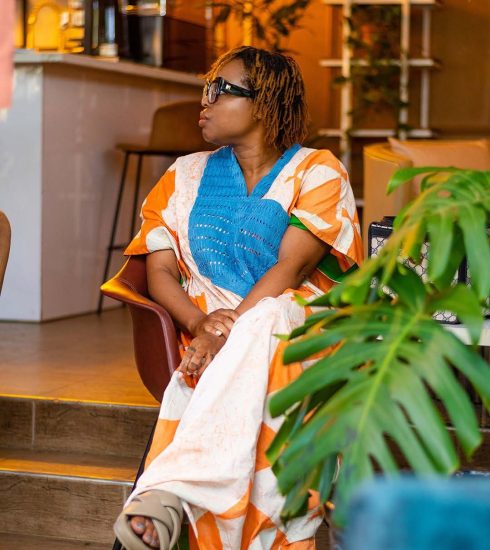New Year Better Habits
I can’t be the only one alarmed about how quickly time is flying. However, I am not complaining; a girl has to remain grateful for life and health these days. In a bid to maintain my sanity and remain compos mentis in today’s world, I did not bother to make any grandiose New Year’s resolutions. Instead, I promised myself that I would cultivate better habits—better habits concerning how I think and speak, better habits about how I look after and view my body, and better habits concerning my environment.
Refuse, Reuse, Recycle
I love a good cause. This week and in line with my better-habits-concerning-my-environment ideal, it was my pleasure to participate in the launch event of the ban on single-use plastics by the Lagos State Environmental Protection Agency (LASEPA).
This initiative started last year with a ban on single-use plastic bags within the agency, with the long-term goal of changing lifestyles and creating ambassadors for change. At this time, the agency started a feasibility study to assess the ban’s effectiveness before making recommendations to other agencies. In her remarks, LASEPA General Manager, Dr. Dolapo Fasawe, recalled that when she implemented the sorting of waste (PET/plastic bottles, paper, and vegetal waste) last year, plastic bottles were filling the dustbins faster than any other waste item.
As her personal contribution to the cause, the GM provided the agency with easy-access water dispensers and distributed reusable water bottles and tote bags to all the staff.
Why Does This Ban Matter?
About eight million tons of plastic waste escapes from coastal nations into the oceans every year. A straw in your cocktail glass, a plastic bag for your grocery shopping, a wrapper on a snack item, the convenience of plastics in everyday life cannot be underestimated. The tragedy is that these plastic items that are so readily available and abundant are so quickly thrown out. You may not even notice how much single-use plastic you get through in a day.
It would be easy to convince yourself that taking any action at all as an individual would be an utter waste of time and could not possibly make any difference. You would be wrong.
Here is something to think about: a staggering 91 per cent of plastics aren’t recycled at all. It ends up in landfills or the environment. To add insult to injury, plastics don’t really break down to harmless byproducts; they just break up. Over time, sun and heat slowly turn plastics into smaller and smaller pieces until they eventually become microplastics. These microplastics end up everywhere. In deep oceans, Arctic snow, Antarctic ice, shellfish, table salt, drinking water, drifting in the air, and falling rain. There is no escaping the exposure, and studies have shown that you might ingest anywhere from dozens to more than 100,000 microplastic particles each day, the harmful effects of which are still being researched and quantified.
With all this in mind reducing the demand for plastic use is the most effective means of avoiding this waste and its associated pollution.
Can you be a part of the solution? Carrying reusable bags, cups and bottles is one great way to avoid single-use plastics in your dayto- day life. Consider banning PET bottles in your household.
Change to recyclable cans or bottles for your water and drink needs and get a water dispenser in your office.
Together we can be the change.
Odunayo Ogunbiyi is an ex pharmacist with a passion for food and pampering. Writing about her exploits wherever in the world she may find herself is just her way of staying sane in this zany world.






